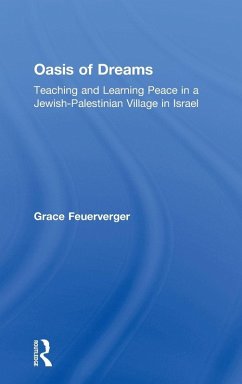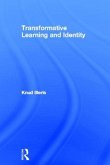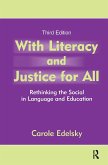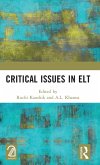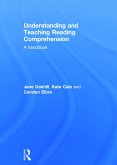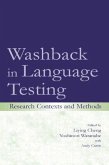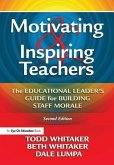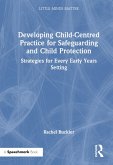Neve Shalom/Wahat Al-Salam (the Hebrew and Arabic words for Oasis of Peace) is a community founded by Jews and Palestinians that is aimed at demonstrating the possibilities for living in peace while maintaining their respective cultural heritages and languages. The village schools represent a unique educational experience: an opportunity for Jewish and Palestinian children to learn together in a Hebrew-Arabic bilingual, bicultural, binational setting. This book, a result of the author's nine year study of the schools in the village, explores the psychological and social dimensions of this important educational endeavor.
Hinweis: Dieser Artikel kann nur an eine deutsche Lieferadresse ausgeliefert werden.
Hinweis: Dieser Artikel kann nur an eine deutsche Lieferadresse ausgeliefert werden.
"Professor Feuerverger offers us a remarkable look into the Jewish-Palestinian experience... and offers a much needed perspective from which to view multilingual and multicultural issues? She provides a rich qualitative and compelling case for attending to the complexity and power of acknowledging and being responsive to difference in the context of securing the dream of peace." -- Eugene E. Garcia, University of California, Berkeley
"Feuerverger provides an empathetic account of one of the most interesting and path-breaking educational experiments in Israel, that has significance beyond the borders of Israel." -- Shlomo Swirski, The Adva Center, Tel Aviv
"It's hard to write about utopias; let alone a Middle Eastern one. Yet, Grace Feuerverger, a daughter of Holocaust survivors, with a keen, compassionate insight and well-honed tools of a sociolinguist, manages in this book to create a remarkable ethnographic study of this remarkable concretized utopia? Through an impressive field-work, the author explores the social and psychological dimensions of an "educational odyssey towards peaceful coexistence," and gives us a detailed itinerary for what that torn region needs most desperately: a geography of inclusion. If nothing else, this is a dreamer's handbook." -- Anton Shammas, University of Michigan
"At a time of tragic unrest in Israel and ongoing conflict, this qualitative study of a school in which Jewish and Palestinian children learn together holds particular significance. Feuerverger never underestimates the complexities of the Israeli situation, nor does she deny her own painful memories, her experiences in the diaspora, her struggle to belong. This is a beautiful, insightful book, offering us no final answers but enhancing our capacity to see." -- Maxine Greene, Teachers College, Columbia University
"Everybody talks about peace in the Middle East, but nobody does anything about it. Well, almost nobody. As University of Toronto education professor Grace Feuerverger shows in this often moving study, peace is possible, although so far in small ways only. Feuerverger, the daughter of Holocaust survivors, takes us to the village of Neve Shalom/Wahat-al-Salaam ("peace" in either language), where barriers of mistrust, hatred and myths of victimhood have been broken down, and dialogue, justice and interfaith understanding reign. It is a profoundly optimistic microcosm in a macrocosm of pain and despair. The study is academic in part, but it is much enlivened by anecdotes, interviews and portraits of the hopeful people who make the village their home." -- Globebooks.com
"I found this to be an extraordinarily rich text, describing not only the internal culture of a very unique school, but its intricate connections to the village, to the nation, and to the international setting.the book is a major contribution to our understanding of the way in which a school and its community can deal effectively with deep divisions, suffering and hurt in the effort to build a just, rightful and sustainable society. It conveys the extremely complex realities of Jewish-Palestinian relations and offers a spiritually uplifting perspective of multilingual and multicultural education. The author shows that these schools are really no longer an "experiment," but rather a demonstration of effective peace education and an exemplary model for schools and communities in similarly graver predicaments." -- Anthropology & Education Quarterly
"Feuerverger weaves her quilt with a rich spectrum of sources ranging from writings on narrative and autobiography, to ethnographic and qualitative research, to socio-linguistic research, to research on moral education, to writings on multicultural and multilingual education, to theories of language learning. She does not leave a stone unturned in terms of the integrity of her qualitative methodology and the choice of her tools...Since she is of Jewish heritage, she was constantly struggling to create a balance between distancing herself and yet acknowledging her implication as participant/ observer in ethnographic research that involves both Israelis and Palestinians. I believe her brilliance as a researcher shines through her utilization of that awareness..." -- McGill Journal of Education (MJE), Volume 37, Number 2, Spring 2002
"Feuerverger's research does a great service to the quest for peace because it is a unique attempt to document highly problematic emotions. It presents authentic negotiations between participants who are encouraged to abandon any fixed views of the other and to search for a common ground in the context of the Arab-Israeli confict...Feuerverger's research is marked by intellectual rigour, by integrity, by passion and enthusiasm, and cleary by idealistic aspirations. Her contributions is great. She has succeeded in highlighting a very important project, one that could possibly propel future similar efforts." -- McGill Journal of Education (MJE), Volume 37, Number 2, Spring 2002
"Oasis of Dreams is an extremely valuable and innovative book which offers a working model of peace educaiton in the context of intergroup conflict...this is a book that offers its readers hope and restores their faith in the meaningfulness and power of the teaching profession." -- Aneta Pavlenko, Temple University The Canadian Modern Language Review
"Everybody talks about peace in the Middle East, but nobody does anything about it. Well, almost nobody. As University of Toronto education professor Grace Feuerverger shows in this often moving study, peace is possible, although so far in small ways only. Feuerverger, the daughter of Holocaust survivors, takes us to the village of Neve Shalom/Wahat-al-Salaam ("peace" in either language), where barriers of mistrust, hatred and myths of victimhood have been broken down, and dialogue, justice and interfaith understanding reign. It is a profoundly optimistic microcosm in a macrocosm of pain and despair. The study is academic in part, but it is much enlivened by anecdotes, interviews and portraits of the hopeful people who make the village their home." -- Globebooks.com
"Professor Feuerverger offers us a remarkable look into the Jewish-Palestinian experience... and offers a much needed perspective from which to view multilingual and multicultural issues? She provides a rich qualitative and compelling case for attending to the complexity and power of acknowledging and being responsive to difference in the context of securing the dream of peace." -- -Eugene E. Garcia, University of California, Berkeley
"I found this to be an extraordinarily rich text, describing not only the internal culture of a very unique school, but its intricate connections to the village, to the nation, and to the international setting.the book is a major contribution to our understanding of the way in which a school and its community can deal effectively with deep divisions, suffering and hurt in the effort to build a just, rightful and sustainable society. It conveys the extremely complex realities of Jewish-Palestinian relations and offers a spiritually uplifting perspective of multilingual and multicultural education. The author shows that these schools are really no longer an "experiment," but rather a demonstration of effective peace education and an exemplary model for schools and communities in similarly graver predicaments." -- Anthropology & Education Quarterly, March 2002
"...This reflexive and deeply compassionate ethnography is a courageous and worthy intellectual enterprise." -- Comparative Education Review
"Feuerverger ought to be congratulated for her skills in achieving a coherent, first-rate, 'reasoned' ethnography and exploration of great depth of the multiple and complex interactions and relationships among the inhabitants of this extraordinary village and its unique binational, bicultural and bilingual community and educational institutions. Feuerverger has clearly demonstrated her distinguished credentials as a first class scholar, educator, and ethnographer." -- Journal of Educational Change
"The methodology provides a better understanding and interpretation of the interaction of the author's past life as the child of holocaust survivors with the life experiences of the residents of the village. This "transparent" methodology is particularly refreshing given the evocative political environs of the Palestinian-Israeli conflict. The end result is a rich, multi-voiced text with both academic and popular appeal that mirrors the author's own self-characterization as a "border crosser." -- Journal of International Migration and Integration
"It is in the spirit of resistance and hope that Feuerverger goes in search of a more fully humanistic pedagogy... A book of inspiration and practical guidance. Here, indeed, is a book about miracles -- written by a miracle-maker for the miracle-workers teachers might yet become."-From the Foreword by William Ayers, University of Illinois at Chicago
"A beautifully written quest for meaning through teaching, this narrative imparts a glow and significance to the relation between teachers and learners that can only arise in an awareness of a darkness ordinarily denied. A fine and unusual book, authentic and wise."-Maxine Greene, Teachers College, Columbia University
"A splendid meditation on education, Feuerverger reminds us of the deepest consolation of the classroom."- Richard Rodriguez, author of Hunger of Memory: The Education of Richard Rodriguez
"Feuerverger provides an empathetic account of one of the most interesting and path-breaking educational experiments in Israel, that has significance beyond the borders of Israel." -- Shlomo Swirski, The Adva Center, Tel Aviv
"It's hard to write about utopias; let alone a Middle Eastern one. Yet, Grace Feuerverger, a daughter of Holocaust survivors, with a keen, compassionate insight and well-honed tools of a sociolinguist, manages in this book to create a remarkable ethnographic study of this remarkable concretized utopia? Through an impressive field-work, the author explores the social and psychological dimensions of an "educational odyssey towards peaceful coexistence," and gives us a detailed itinerary for what that torn region needs most desperately: a geography of inclusion. If nothing else, this is a dreamer's handbook." -- Anton Shammas, University of Michigan
"At a time of tragic unrest in Israel and ongoing conflict, this qualitative study of a school in which Jewish and Palestinian children learn together holds particular significance. Feuerverger never underestimates the complexities of the Israeli situation, nor does she deny her own painful memories, her experiences in the diaspora, her struggle to belong. This is a beautiful, insightful book, offering us no final answers but enhancing our capacity to see." -- Maxine Greene, Teachers College, Columbia University
"Everybody talks about peace in the Middle East, but nobody does anything about it. Well, almost nobody. As University of Toronto education professor Grace Feuerverger shows in this often moving study, peace is possible, although so far in small ways only. Feuerverger, the daughter of Holocaust survivors, takes us to the village of Neve Shalom/Wahat-al-Salaam ("peace" in either language), where barriers of mistrust, hatred and myths of victimhood have been broken down, and dialogue, justice and interfaith understanding reign. It is a profoundly optimistic microcosm in a macrocosm of pain and despair. The study is academic in part, but it is much enlivened by anecdotes, interviews and portraits of the hopeful people who make the village their home." -- Globebooks.com
"I found this to be an extraordinarily rich text, describing not only the internal culture of a very unique school, but its intricate connections to the village, to the nation, and to the international setting.the book is a major contribution to our understanding of the way in which a school and its community can deal effectively with deep divisions, suffering and hurt in the effort to build a just, rightful and sustainable society. It conveys the extremely complex realities of Jewish-Palestinian relations and offers a spiritually uplifting perspective of multilingual and multicultural education. The author shows that these schools are really no longer an "experiment," but rather a demonstration of effective peace education and an exemplary model for schools and communities in similarly graver predicaments." -- Anthropology & Education Quarterly
"Feuerverger weaves her quilt with a rich spectrum of sources ranging from writings on narrative and autobiography, to ethnographic and qualitative research, to socio-linguistic research, to research on moral education, to writings on multicultural and multilingual education, to theories of language learning. She does not leave a stone unturned in terms of the integrity of her qualitative methodology and the choice of her tools...Since she is of Jewish heritage, she was constantly struggling to create a balance between distancing herself and yet acknowledging her implication as participant/ observer in ethnographic research that involves both Israelis and Palestinians. I believe her brilliance as a researcher shines through her utilization of that awareness..." -- McGill Journal of Education (MJE), Volume 37, Number 2, Spring 2002
"Feuerverger's research does a great service to the quest for peace because it is a unique attempt to document highly problematic emotions. It presents authentic negotiations between participants who are encouraged to abandon any fixed views of the other and to search for a common ground in the context of the Arab-Israeli confict...Feuerverger's research is marked by intellectual rigour, by integrity, by passion and enthusiasm, and cleary by idealistic aspirations. Her contributions is great. She has succeeded in highlighting a very important project, one that could possibly propel future similar efforts." -- McGill Journal of Education (MJE), Volume 37, Number 2, Spring 2002
"Oasis of Dreams is an extremely valuable and innovative book which offers a working model of peace educaiton in the context of intergroup conflict...this is a book that offers its readers hope and restores their faith in the meaningfulness and power of the teaching profession." -- Aneta Pavlenko, Temple University The Canadian Modern Language Review
"Everybody talks about peace in the Middle East, but nobody does anything about it. Well, almost nobody. As University of Toronto education professor Grace Feuerverger shows in this often moving study, peace is possible, although so far in small ways only. Feuerverger, the daughter of Holocaust survivors, takes us to the village of Neve Shalom/Wahat-al-Salaam ("peace" in either language), where barriers of mistrust, hatred and myths of victimhood have been broken down, and dialogue, justice and interfaith understanding reign. It is a profoundly optimistic microcosm in a macrocosm of pain and despair. The study is academic in part, but it is much enlivened by anecdotes, interviews and portraits of the hopeful people who make the village their home." -- Globebooks.com
"Professor Feuerverger offers us a remarkable look into the Jewish-Palestinian experience... and offers a much needed perspective from which to view multilingual and multicultural issues? She provides a rich qualitative and compelling case for attending to the complexity and power of acknowledging and being responsive to difference in the context of securing the dream of peace." -- -Eugene E. Garcia, University of California, Berkeley
"I found this to be an extraordinarily rich text, describing not only the internal culture of a very unique school, but its intricate connections to the village, to the nation, and to the international setting.the book is a major contribution to our understanding of the way in which a school and its community can deal effectively with deep divisions, suffering and hurt in the effort to build a just, rightful and sustainable society. It conveys the extremely complex realities of Jewish-Palestinian relations and offers a spiritually uplifting perspective of multilingual and multicultural education. The author shows that these schools are really no longer an "experiment," but rather a demonstration of effective peace education and an exemplary model for schools and communities in similarly graver predicaments." -- Anthropology & Education Quarterly, March 2002
"...This reflexive and deeply compassionate ethnography is a courageous and worthy intellectual enterprise." -- Comparative Education Review
"Feuerverger ought to be congratulated for her skills in achieving a coherent, first-rate, 'reasoned' ethnography and exploration of great depth of the multiple and complex interactions and relationships among the inhabitants of this extraordinary village and its unique binational, bicultural and bilingual community and educational institutions. Feuerverger has clearly demonstrated her distinguished credentials as a first class scholar, educator, and ethnographer." -- Journal of Educational Change
"The methodology provides a better understanding and interpretation of the interaction of the author's past life as the child of holocaust survivors with the life experiences of the residents of the village. This "transparent" methodology is particularly refreshing given the evocative political environs of the Palestinian-Israeli conflict. The end result is a rich, multi-voiced text with both academic and popular appeal that mirrors the author's own self-characterization as a "border crosser." -- Journal of International Migration and Integration
"It is in the spirit of resistance and hope that Feuerverger goes in search of a more fully humanistic pedagogy... A book of inspiration and practical guidance. Here, indeed, is a book about miracles -- written by a miracle-maker for the miracle-workers teachers might yet become."-From the Foreword by William Ayers, University of Illinois at Chicago
"A beautifully written quest for meaning through teaching, this narrative imparts a glow and significance to the relation between teachers and learners that can only arise in an awareness of a darkness ordinarily denied. A fine and unusual book, authentic and wise."-Maxine Greene, Teachers College, Columbia University
"A splendid meditation on education, Feuerverger reminds us of the deepest consolation of the classroom."- Richard Rodriguez, author of Hunger of Memory: The Education of Richard Rodriguez

